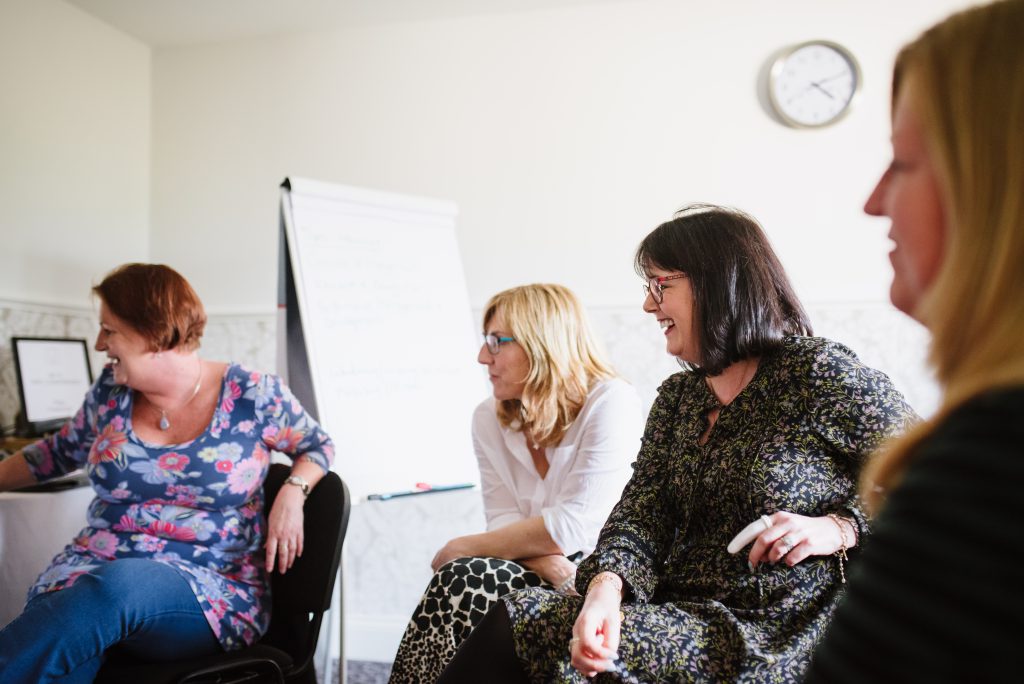My business is growing so fast – how do I keep up with it?
Rapid business growth can bring a lot of different stresses and strains to a business – not least because people’s roles evolve as the business expands. People Puzzles founder Ally Maughan explains how CEOs can best manage the changes as well as their own role, which is likely to change the most.
The evolving role of the CEO
With People Puzzles currently growing at over 40% per year, Ally has first-hand experience of the challenges in keeping up with a fast-growing company. ‘In a fast-growing business, your day-to-day role constantly changes,’ she says.
‘When you have a 40-strong business you can still do everything yourself, make most of the decisions and fix anything that needs fixing. But as the business grows you have to stop doing things that were your job last year, otherwise you are meddling in the jobs your senior team should be doing and risk becoming a bottleneck. The CEO’s role should be to provide clarity, direction, challenge and upholding the company culture.’
Know where you’re going
Business coaching can help build a clear idea of what you’re working towards. ‘It’s important to have extreme clarity on this – and that everyone in your senior team has bought into it,’ says Ally. ‘So when you’re going through a painful systems change with three months of turmoil, you can all keep your eye on the prize. If not, you end up with a group of dissenters and grumblers.’
Visualise your plans
Ally recommends doing a vision exercise to help you think in more detail about your growth plans. ‘It’s worth taking yourself out of your day-to-day state and give yourself time – using someone you have chosen consciously as a facilitator,’ she says. ‘We use an orbit wheel planning tool that allows you to link turnover growth with number of people, number of clients, revenue per client etc. This builds a holistic picture.’
Plan your future team
A people expert can advise on what your CEO job description should be when there are twice as many people in the business. They can also look at the key roles you will need at that point and who might have the capability to go into those roles. ‘In essence, it’s succession planning – not because of people leaving but to fill the organisational chart you need when you’re twice as big,’ says Ally. ‘If you start with the business strategy, your people strategy is what is going to help deliver that.’
Build a senior team
Part of investing in new staff is often in building a strong senior team who can start to take on different aspects of running the business. Ally recommends planning this early on as part of the vision exercise described above. ‘Visualise all of the senior team in place; what would their key responsibilities be? Once you know what you want and you understand what the cultural fit needs to be, you can go and find those people.’
There may be times when you need to make difficult decisions about who joins the senior team and who doesn’t. ‘You might need a role today and can’t wait two years for an existing staff member to become ready for it,’ Ally says. ‘So you have to be pragmatic and accept that some people might not be able to join you on your journey.’
Choosing the right people
Ally advises extreme care when choosing people for your senior team. ‘Rather than bringing in someone who would suit the business in 5 years’ time, it’s worth looking for someone who can help you go on the next leg of the journey i.e. an 18 month time frame,’ she says. ‘Just because someone has worked at a big corporate it doesn’t mean they know what you need next. Someone needs to be able to face the next set of challenges with you.’
Recruiting the wrong person can be expensive and mean a lot of time investment wasted. ‘It’s so important to have an excellent recruitment process and do everything you can – all of the science around good interviewing, psychometric testing and cultural fit – to make sure they’re right for the business,’ Ally says.
Ultimately, Ally recommends getting help with change management as roles change. ‘I think business coaching is absolutely essential,’ she says, ‘as well as having people around you who will give you honest and constructive criticism.’

Ally Maughan, Founder
If you’d like to get a people expert in to help visualise and then realise your growth plans, call People Puzzles on 0808 164 5826 or email [email protected].


